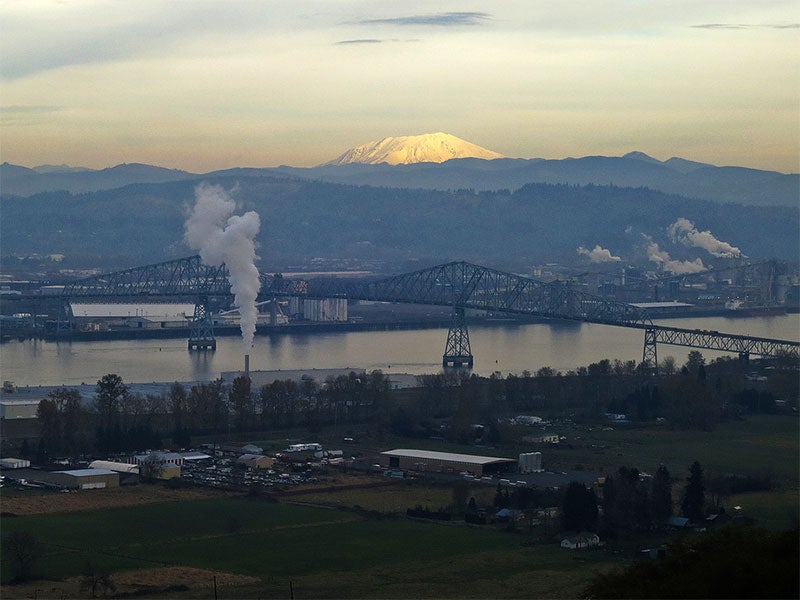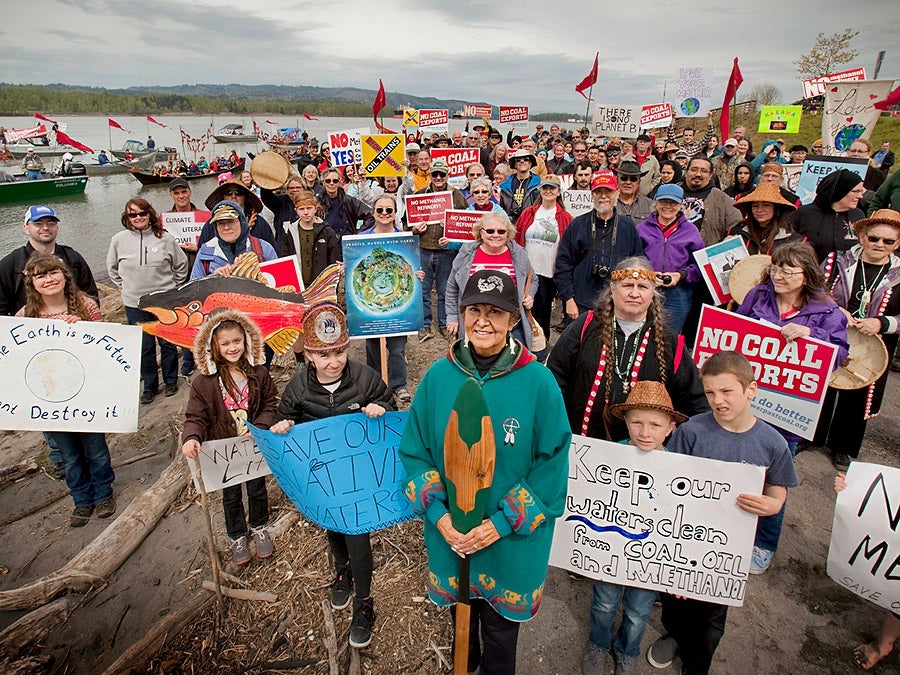Stopping Coal Exports In Washington State
Coal use in the U.S. is dropping, but coal companies are attempting to export their dirty ways to Asia, via proposed terminals in the Pacific Northwest. Earthjustice is working to prevent its export, which will reduce global warming and protect public health.
Clients
Regional Office / Program
Case Overview
In the United States, coal is quickly becoming a thing of the past, and nothing could be better for our climate. But dirty coal companies aren’t willing to let their profits slip away so easily. They hope to export the coal that we no longer burn to China.
In addition to worsening global warming, the transport of coal from mines in the interior U.S. to coastal export facilities threatens public health for those along the rail lines. In November of 2010, county commissioners in Washington State approved a shoreline permit to build a coal export facility in Longview, Washington.
Earthjustice represented a coalition of conservation and clean energy groups to block construction of this facility. In March 2011, Millennium Bulk Logistics withdrew its permit application after Earthjustice attorney Jan Hasselman discovered in company documents that the true scope of the company’s project was up to 12 times what had been proposed in the permitting process. However, the company resubmitted its application in 2012. Earthjustice’s legal team is examining the new permit applications and studying Millennium’s proposal.
In May 2013, Earthjustice submitted a formal petition on behalf of numerous groups to the U.S. Army Corps of Engineers, requesting a full environmental and health review of all proposed coal export terminals in Oregon and Washington. We are currently litigating a permit for a potential port site in Coos Bay, Oregon, arguing that the state agency failed to consider all of the impacts of huge coal vessels on fishermen and the environment. We are working with communities, Tribes, government agencies and elected officials from the Pacific Northwest to ensure that the environmental review for the proposed terminals fully accounts for all environmental impacts—including more coal combustion overseas—and that a full and fair public conversation precedes any final permitting decisions. Ultimately, we share a common goal to keep coal in the ground.

Case Updates
Case page created on December 14, 2010.
